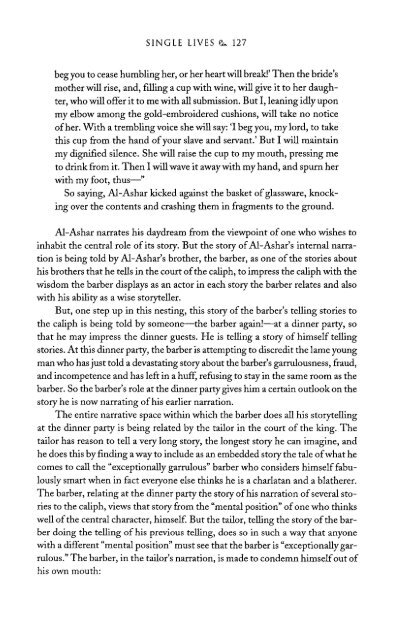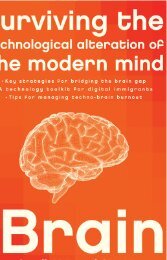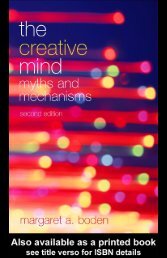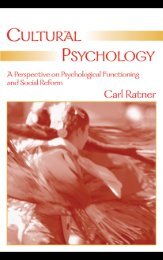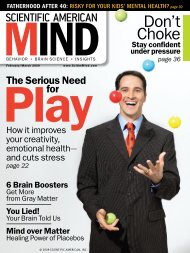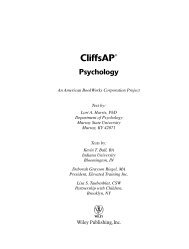The Literary Mind.pdf
The Literary Mind.pdf
The Literary Mind.pdf
Create successful ePaper yourself
Turn your PDF publications into a flip-book with our unique Google optimized e-Paper software.
SINGLE LIVES 127<br />
beg you to cease humbling her, or her heart will break!' <strong>The</strong>n the bride's<br />
mother will rise, and, filling a cup with wine, will give it to her daughter,<br />
who will offer it to me with all submission. But I, leaning idly upon<br />
my elbow among the gold-embroidered cushions, will take no notice<br />
of her. With a trembling voice she will say: 'I beg you, my lord, to take<br />
this cup from the hand of your slave and servant.' But I will maintain<br />
my dignified silence. She will raise the cup to my mouth, pressing me<br />
to drink from it. <strong>The</strong>n I will wave it away with my hand, and spurn her<br />
with my foot, thus—"<br />
So saying, Al-Ashar kicked against the basket of glassware, knocking<br />
over the contents and crashing them in fragments to the ground.<br />
Al-Ashar narrates his daydream from the viewpoint of one who wishes to<br />
inhabit the central role of its story. But the story of Al-Ashar's internal narration<br />
is being told by Al-Ashar's brother, the barber, as one of the stories about<br />
his brothers that he tells in the court of the caliph, to impress the caliph with the<br />
wisdom the barber displays as an actor in each story the barber relates and also<br />
with his ability as a wise storyteller.<br />
But, one step up in this nesting, this story of the barber's telling stories to<br />
the caliph is being told by someone—the barber again!—at a dinner party, so<br />
that he may impress the dinner guests. He is telling a story of himself telling<br />
stories. At this dinner party, the barber is attempting to discredit the lame young<br />
man who has just told a devastating story about the barber's garrulousness, fraud,<br />
and incompetence and has left in a huff, refusing to stay in the same room as the<br />
barber. So the barber's role at the dinner party gives him a certain outlook on the<br />
story he is now narrating of his earlier narration.<br />
<strong>The</strong> entire narrative space within which the barber does all his storytelling<br />
at the dinner party is being related by the tailor in the court of the king. <strong>The</strong><br />
tailor has reason to tell a very long story, the longest story he can imagine, and<br />
he does this by finding a way to include as an embedded story the tale of what he<br />
comes to call the "exceptionally garrulous" barber who considers himself fabulously<br />
smart when in fact everyone else thinks he is a charlatan and a blatherer.<br />
<strong>The</strong> barber, relating at the dinner party the story of his narration of several stories<br />
to the caliph, views that story from the "mental position" of one who thinks<br />
well of the central character, himself. But the tailor, telling the story of the barber<br />
doing the telling of his previous telling, does so in such a way that anyone<br />
with a different "mental position" must see that the barber is "exceptionally garrulous."<br />
<strong>The</strong> barber, in the tailor's narration, is made to condemn himself out of<br />
his own mouth:


